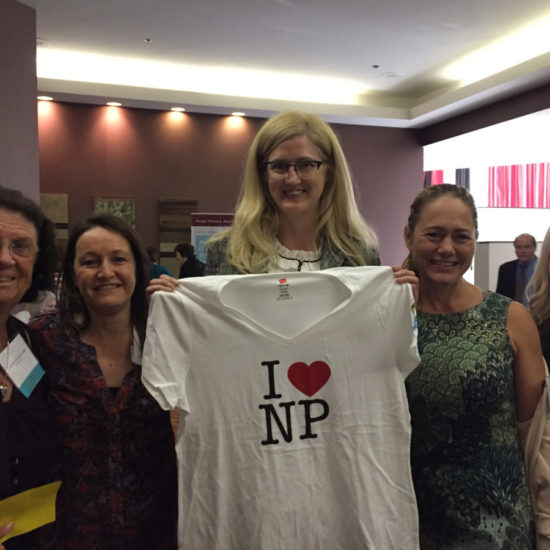
One of the most important and difficult roles of my career in nursing was caring for the pediatric victims of physical and sexual abuse. During my time in this role, I learned a lot about both the dark and hopeful places within the depths of the human soul. The ripple effect of abuse can be devastating for children, families, and across generations. Abuse is not something that happens only in dark basements, in the inner city, or across a border. It is in plain sight and it is everywhere. Despite the darkness, I have also witnessed resilience and strength of spirit combining to overcome and survive adversity. April is child abuse awareness month. While this issue warrants daily attention, April brings the opportunity to awaken, reflect, and spring into action.
The International Labour Organization estimates that approximately 20.9 million people are currently trapped in human trafficking across the globe. Based upon the enslavement and entrapment of human beings, the industry of human trafficking has grown now into a billion-dollar business. The Polaris Project reports that 55% of trafficking victims are women and girls and 26% are children. Due to challenges in identifying victims such as the frequent use of the internet to recruit victims, the actual total amount of trafficking victims is unknown.
Awareness represents an important step in towards ending global human trafficking. Dr. Cheryl Boyd joins Healthcetera to define human trafficking and share her experiences as a clinician and researcher working with people who have ensured “the life” of human trafficking. She recently obtained her PhD in nursing from The Hahn School of Nursing and Health Science and conducted qualitative research about discovering the journey of overcoming the life of sex trafficking. We explore the “life” of human sex trafficking, as well as how to help save lives.
Additionally, efforts are being made to raise awareness of sex trafficking awareness for nurses, physicians, and other members across the health care community. The National Human Trafficking Hotline National Association of Pediatric Nurse Practitioners, the American Academy of Pediatrics, the Polaris Project, and the American Public Health Association have all issued statements and resources about ending human labor and sex trafficking.
President Trump signed the Allow States and Victims to Fight Online Sex Trafficking Act (FOSTA) on April 11, 2018. The FOSTA is combined with the Stop Enabling Sex Traffickers Act (SESTA) in response to the internet as a vehicle for recruiting and advertising sex trafficking. The bill is receiving criticism as a form of online censorship because it alters Section 230 of the Communications Decency Act of 1996 , in relation to sex. However, FOSTA-SESTA also allows law enforcement to act against websites that are actively promoting human trafficking, including sex trafficking.
This is not the first, nor will it be the last bill to arrive in Congress regarding human and sex trafficking. Despite the difficult subject matter, discussions about human and sex trafficking help to bring awareness and initiate action. The conversations, research, advocacy, preventative local efforts (such as signs in airport bathrooms or help line phone numbers printed on bars of soap in hotel rooms), and narratives of survivors helped this issue arrive on Capitol Hill. In my years working as a nurse caring for the pediatric victims of physical and sexual abuse, I learned some valuable lessons: If you don’t look for it, you won’t see it; It is possible to survive and move forward; all it takes is one person to care, and that can make all of the difference; and the failure to invest in our youth is the failure to invest in our future.
To effectively combat human trafficking, each of us needs to have a clear “lens” that helps us understand what human trafficking is. Co-producer Kristi Westphaln interviews Dr. Cheryl Boyd about human trafficking in the United States. You can listen to the interview here:
National Human Trafficking Hotline
Call 1-800-373-7888
Text 233733
Podcast: Play in new window | Download (Duration: 12:21 — 17.0MB)
Subscribe: RSS




